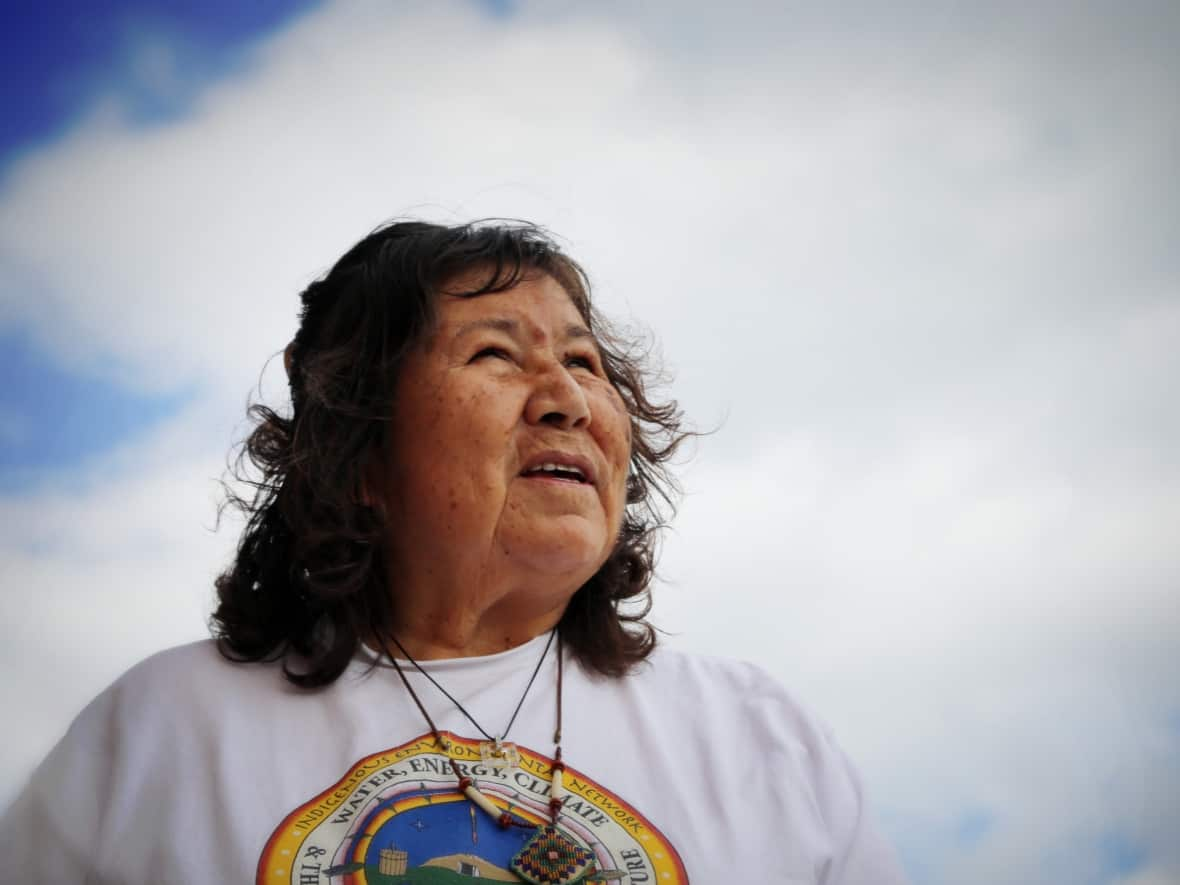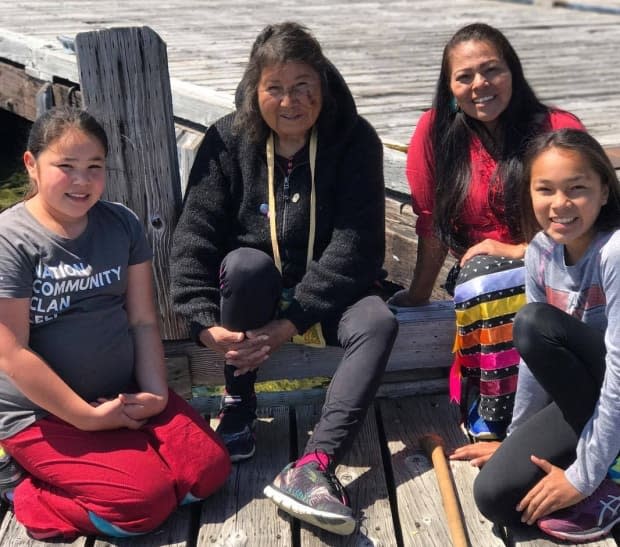Pickering's Sir John A. Macdonald Public School to be renamed after female Indigenous leader

A Pickering, Ont. elementary school will soon bear the name of a female Indigenous leader from Manitoulin Island instead of that of the first prime minister of Canada.
Sir John A. Macdonald Public School, located at 777 Balaton Ave., will be renamed Biidassige Mandamin Public School, according to the Durham District School Board. Trustees voted in favour of changing the name at a meeting on Monday.
The name change, which will cost between $25,000 and $35,000, will take effect in September.
Biidassige (Josephine) Mandamin was an Anishinaabe elder, an advocate for water protection and a residential school survivor. She was originally from Wiikwemkoong Unceded Territory, the board said in a news release on Wednesday.
"Biidassige dedicated her life to speaking for the Great Lakes and was an influential teacher and advocate for the Earth's water," the board said in the release.
"She walked around the Great Lakes from 2003 to 2017 to bring awareness to the problems of water pollution and environmental degradation on the Great Lakes and on Indigenous reserves in Canada."
For her advocacy work, Mandamin was awarded the Anishinabek Lifetime Achievement Award in 2012 and the Governor General's Meritorious Service Cross in 2018. She died on Feb. 22, 2019.
New name presents learning opportunity, trustee says
Carolyn Morton, chairperson of the board and a trustee for the Townships of Brock, Scugog and Uxbridge, said trustees made the decision in response to community concerns about the school's original name.
Macdonald was instrumental in bringing about Confederation in 1867 but also presided over the starvation of Indigenous peoples on the Prairies.
In addition, he introduced the residential school system, under which Indigenous children were taken from their parents and forced to assimilate into white society. The Truth and Reconciliation Commission referred to the system as "cultural genocide" and hundreds of unmarked graves were found on former residential school grounds.last year.
"We are seizing here an opportunity for greater learning here by changing the name," Morton told CBC Radio's Here and Now on Wednesday.
"There is a lot to learn about this amazing woman. She is First Nations, an Indigenous leader and brought attention to the importance of water and preserving the water."

The board formed a school naming committee to look into the name change in May 2021. The committee was asked to consult with the school community, to bring forward naming recommendations and to consider all voices and perspectives.
"We looked at the actual school community and families who had children attending school at the present time and we felt that their voices needed to be heard," she said. "The community has spoken. We will be listening to their voices."
The school, which runs from kindergarten to Grade 8, has about 350 students. Morton said the name change is appropriate because Pickering borders on Lake Ontario.
Indigenous activists welcome name change
Members of the Indigenous community are welcoming the name change.
Indigenous advocate Dawn Lavell-Harvard said it touches her heart that a school will bear the name of her late friend. They worked together for more than two decades.
"This is a sign that society is really changing — that a mainstream school board would honour a woman like Josephine," Lavell-Harvard said.
"She was without a doubt one of the strongest Indigenous women warriors that I know, but in the most kind, gentle way that you can imagine possible. She had such strength and such vision and such a commitment to reviving and keeping our traditions and language alive."
Indigenous activist Christine McRae said she hopes the name change comes with extensive community education.
"What we've seen in the past, perhaps with naming after, say, colonial icons, is that we've dropped parts of that history on purpose," she said.
"When we name something like a school after a really remarkable Indigenous woman, there should be that continued association with what that significance is and really understanding that full and true history."

 Yahoo Movies
Yahoo Movies 
